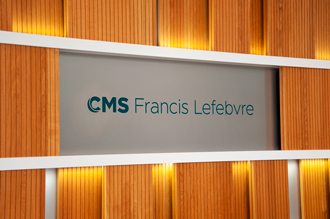On 12 January 2023, Regulation (EU) 2022/2560 of the European Parliament and of the Council of 14 December 2022 on foreign subsidies distorting the internal market (the “Foreign Subsidies Regulation” or “FSR”) entered into force and shall apply from July 2023. It will allow the European Union (“EU”) to investigate financial contributions granted by non-EU governments to companies active in the EU, in order to ensure a level playing field for all companies operating in the single market.
Specifically, the FSR covers three types of situations which can be divided into two categories according to the European Commission (“EC”)’s powers:
- on the one hand, concentrations and bids in public procurements involving financial contributions by non-EU governments which are subject to prior notification obligations before the EC; and
- on the other hand, all other market situations involving foreign subsidies which are not subject to the same notification requirements but for which the EC is free to start an investigation on its own initiative.
The FSR was proposed by the Commission on 5 May 2021, with the purpose of closing a regulatory gap in the EU legislation. According to the EC, the lack of rules allowed subsidies granted by non-EU public authorities to go largely unchecked, while subsidies granted by Member States are subject to close scrutiny within the framework of the EU control of State aid.
It is important to stress that the control mechanism established by the FSR shall apply very broadly to all entities involved in an economic activity within the EU. This covers both foreign entities whether they operate from a permanent establishment within the EU or not, and EU entities whose subsidiaries located abroad may also have benefited from third countries subsidies. In addition, the FSR does not target specific industry sectors or countries.
The purpose of this article is to briefly outline the key features of the FSR.
1. Definition of a foreign subsidy
The definition of foreign subsidy is very similar to that of State Aid. The concept of foreign subsidy is based on the three following criteria:
- financial contribution provided by a third country;
- conferring a benefit to an undertaking engaging in an economic activity in the EU market;
- limited, in law or in fact, to one or more undertakings or industries.
The key requirements are:
- a proof of the State origin of the financial contribution with at least an indirect origin from a third country government; and
- the existence of an “advantage” deriving from this third country contribution.
The foreign subsidies can take different forms. They can for example be granted in the form of zero-interest loans, unlimited State guarantees, zero-tax agreements or dedicated State funding. The FSR provides a non-exhaustive list which includes:
- the transfer of funds or liabilities, such as capital injections, grants, loans, guarantees, tax incentives, debt forgiveness;
- the foregoing of revenue that is otherwise due, such as tax exemptions or the granting of special or exclusive rights without adequate remuneration;
- the provision of goods and services or their purchase which are not achieved on market terms.
This is a very broad concept and encompasses a wide range of public interventions from granting of positive financial advantages to relief from economic burden.
2. The distortions on the EU market
The FSR does not lay down a general prohibition on the award of foreign subsidies. Only the foreign subsidies likely to distort competition in the EU market are prohibited under the FSR and may be subject to remedies.
The EC will have to conduct a substantive test to determine whether the scrutinized subsidy distorts competition meaning that it improves the competitive position of the beneficiary.
The following indicators will help establishing whether a subsidy results in negative impacts:
- the amount of the subsidy;
- its nature;
- the situation of the undertaking, including its size and market share, and the functioning of the relevant market(s);
- the purpose and conditions attached to the foreign subsidy as well as its use on the internal market.
The EC will also have to find out if possible positive effects “on the development of the relevant economic activity” outweigh the distortive effects of the subsidy.
The FSR establishes a presumption that a foreign subsidy whose total amount does not exceed EUR 4 million over any consecutive period of three financial years is unlikely to distort the internal market. The FSR also provides that foreign subsidies which do not exceed the de minimis threshold of EUR 200,000 per third country over any consecutive period of three years are not distortive.
3. The powers of the EC
To ensure uniform application of the regulation throughout the EU, the EC is exclusively competent to enforce the FSR. During this centralised implementation, Member States will be kept regularly informed and will be involved, through the advisory procedure, in decisions adopted under the regulation.
As mentioned above, the EC has the power to investigate foreign subsidies, by means of three tools:
- two prior authorisation tools, to ensure a level playing field for the largest mergers and bids in large-scale public procurement;
- a general market investigation tool, to investigate all other market situations and lower-value mergers and public procurement procedures.
The EC is empowered to investigate subsidies granted up to five years prior to 12 July 2023 where such foreign subsidies distort the internal market after that date.
In a nutshell, the investigation process is based on four milestones.
- The EC may on its own initiative (ex officio) examine information from any source regarding alleged distortive foreign subsidies.
- When the EC considers that a distortive foreign subsidy may exist, it shall seek all information it considers necessary for its assessment, by simple requests for information or inspections carried in and outside the EU.
- Based on the information gathered, the EC may decide to open an individual case on an undertaking, called a “preliminary review”. If the EC concludes that there is foreign subsidy or indication of distortion of the internal market, it shall open an “in-depth investigation”.
- During the in-depth investigation the EC shall request further information. At this stage, the EC may adopt a “negative decision” to sanction an established foreign subsidy.
- Finally, in the case of a negative decision, the undertaking may offer commitments to correct the wrongs; otherwise the EC will adopt a decision with redressive measures. Such redressive measures may include repayment of the foreign subsidy, divestment of certain assets, reducing market presence (for instance, by means of a temporary commercial activity restriction), offering access to an infrastructure, granting of licenses, etc. These measures are in line with the existing remedies of competition law.
4. Concentrations
The FSR also sets an obligation to notify the EC of foreign subsidies in the event of a concentration. Such obligation refers to subsidised foreign investors intending to acquire an EU company and shall apply where the two following thresholds are met:
- the target or at least one of the merging undertakings is established in the EU and generates an aggregate turnover in the EU of at least EUR 500 million; and
- all undertakings involved in the concentration were granted from non-EU governments a combined aggregate financial contribution of at least EUR 50 million in the three calendar years prior to notification.
The notification must be made prior to the implementation of the operation, which may not take place, until the EC has finalised its first examination or, where appropriate, its in-depth examination.
The review process under the notification regime is similar to the EU merger control process. Therefore, transactions cannot be completed during a phase I review period of 25 working days following complete notification. If the EC initiates an in-depth phase II investigation (90 working days), the transaction cannot be completed before the EC has approved the transaction. If the parties offer commitments, this period is extended by an additional 15 working days.
As is the case under the EU merger control rules, the EC will have the power to impose very significant fines of up to 10% of the global revenue of the undertakings concerned if a transaction is not notified or prematurely implemented.
Mergers below the notification thresholds may be subject to ex officio examination by the EC, which may propose commitments or remedies if a potential distortion is identified.
5. Public procurement procedures
Furthermore, where a subsidised undertaking participates in an EU public procurement procedure, the FSR imposes a notification obligation. Like in the merger provisions, this obligation is subject to certain thresholds.
More specifically, a notifiable foreign subsidy is deemed to arise where:
- the estimated total value of the procurement amounts to at least EUR 250 million; and
- the economic operator was granted aggregate financial contributions in the three financial years prior to notification of at least EUR 4 million per third country.
When submitting a tender in a public procurement procedure, the subsidised company will have to notify the contracting authority of all foreign financial contributions above the threshold received in the three years prior to notification.
The EC can also request ad-hoc notifications for smaller public procurement procedures if it suspects the existence of distortive subsidies. Pending the EC’s review, the investigated bidder cannot be awarded the contract.
Apart from the obligation of notification, there is an obligation of declaration. Indeed, when the procurement procedure is below the notification thresholds, economic operators participating in a public procurement procedure shall list in a declaration all foreign financial contributions received.
Once the notification or declaration is submitted, the contracting authority shall transfer the notification or declaration to the EC without delay. Where, after an in-depth investigation, the EC finds that an economic operator benefits from a foreign subsidy which distorts the internal market, it shall request for commitments that fully and effectively remove the distortion. If this is not possible, the EC shall adopt a decision prohibiting the award of the contract.
Failure to notify can lead to significant fines of up to 10 % of aggregate turnover.
The FSR will become directly applicable across the EU six months after its entry into force, that is to say from 12 July 2023. The notification obligations provided for in the regulation will start to apply from 12 October 2023.
Find more about our law firm:
Our law firm is a leading international business law firm. It is ranked as the third-largest French law firm by revenue. Its deep roots, unique positioning and highly recognised expertise enables it to deliver innovative, high value-added solutions in tax, business, corporate and labour law.







%20(3)%20(1).jpg?v=2)





Social Media cookies collect information about you sharing information from our website via social media tools, or analytics to understand your browsing between social media tools or our Social Media campaigns and our own websites. We do this to optimise the mix of channels to provide you with our content. Details concerning the tools in use are in our privacy policy.